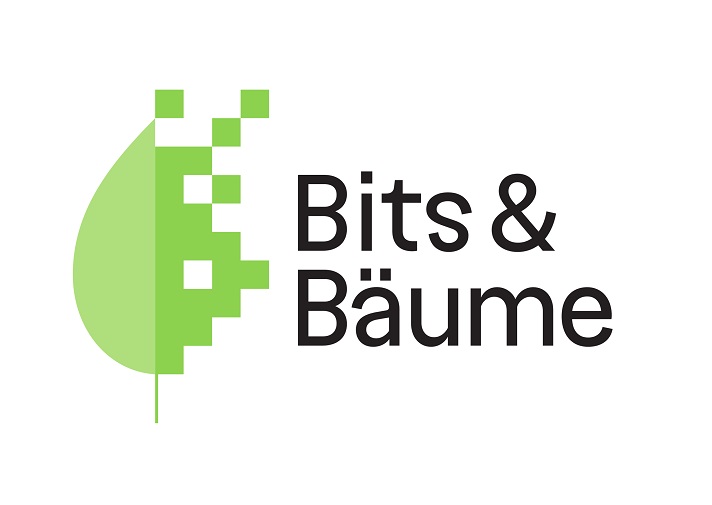
This is How Sustainable Digitalisation Works - Bits & Bäume Book gives 28 Impulses
06/06/2023From artificial intelligence and the environmental impact of the digital economy to global justice: the digital transformation presents numerous challenges and risks. The book "Shaping Digital Transformation for a Sustainable Society", which is being presented today by the Bits & Bäume network at the re:publica conference in Berlin, shows how society can become digitally sustainable.
It contains 28 contributions from 68 authors hailing from civil society, research, and practical experience, discussing challenges of digitalisation and how digital politics can and must be designed for sustainability. The is available for free open-access download as an online-only publication.
"Managing a just sustainability transformation also involves the meaningful use of digital technologies and a reordering of the digital landscape. In the Bits & Trees movement and especially in the publication now published, theory-driven science and experience-based practice fruitfully combine to constructively point out ways in which we can master this task facing society as a whole," says Rainer Rehak, research associate at the Weizenbaum Institute and co-initiator of Bits & Bäume.
The volume congregates contributions from the Bits & Bäume community, which came together in 2022 for the second conference on digitalisation and sustainability (https://bits-und-baeume.org/en/conference-2022/) with 2,500 participants in Berlin. The conference was jointly organized by 13 organizations from the fields of environmental protection, digital policy, development policy, and science.
Digitalisation and Sustainability: "Progress" Must be Redefined
The book showcases ways in which the vision of sustainable digitalisation can become a reality. The authors aim to redefine progress in light of the often hidden environmental and social justice impacts of current forms of digitalisation. Including illustrations and infographics, the volume is offering insights on topics such as designing artificial intelligence for sustainable transformation or conducting life cycle assessments of software.
Sustainable Tech Design: Learning from Good Practice and Sustainability
Digital tools can help neighbourhoods share regionally generated renewable electricity. Other applications are helping to transform agriculture in a social-ecological way. Using such good practice examples, the book shows how digital technologies can be made sustainable. What is more, it makes clear that civil society can be the engine of sustainable change and that politics must involve civil society actors in shaping a sustainable digital future.
Book for Beginners and Experts
The 150-page book caters to readers seeking both introductory material and in-depth knowledge. It strives to amplify the voice of civil society, ensuring their perspectives are considered in the ongoing efforts to align digitization with sustainability goals. This way, the book aims to help ensure that the voice of civil society is heard in the reorientation of digitalisation towards a sustainable future.
The publication and the Bits & Bäume conference 2022 were funded by the German Federal Environmental Foundation (DBU) and the Federal Ministry for the Environment, Nature Conservation, Nuclear Safety and Consumer Protection (BMUV). The work of Germanwatch and Forum InformatikerInnen für Frieden und gesellschaftliche Verantwortung (FIfF) in the context of the conference were supported by the Stiftung Mercator.
THE SIGNING ORGANISATIONS
Bits & Bäume, Brot für die Welt, Chaos Computer Club (CCC), Deutscher Naturschutzring (DNR), Einstein Center Digital Future, Free Software Foundation Europe (FSFE), Forum InformatikerInnen für Frieden und gesellschaftliche Verantwortung (FIfF), Germanwatch, Institut für ökologische Wirtschaftsforschung (IÖW), Konzeptwerk Neue Ökonomie, Weizenbaum Institute
RELATED LINKS
- The Journal "Shaping Digital Transformation for a Sustainable Society": https://publication2023.bits-und-baeume.org
- Bits & Bäume at re:publica:
1) Book Launch: https://re-publica.com/de/session/bits-baeume-journal-launch-and-5-year-anniversary-meetup
2) Bits & Bäume future journey: https://re-publica.com/en/node/2209) - More about Bits & Bäume: https://bits-und-baeume.org